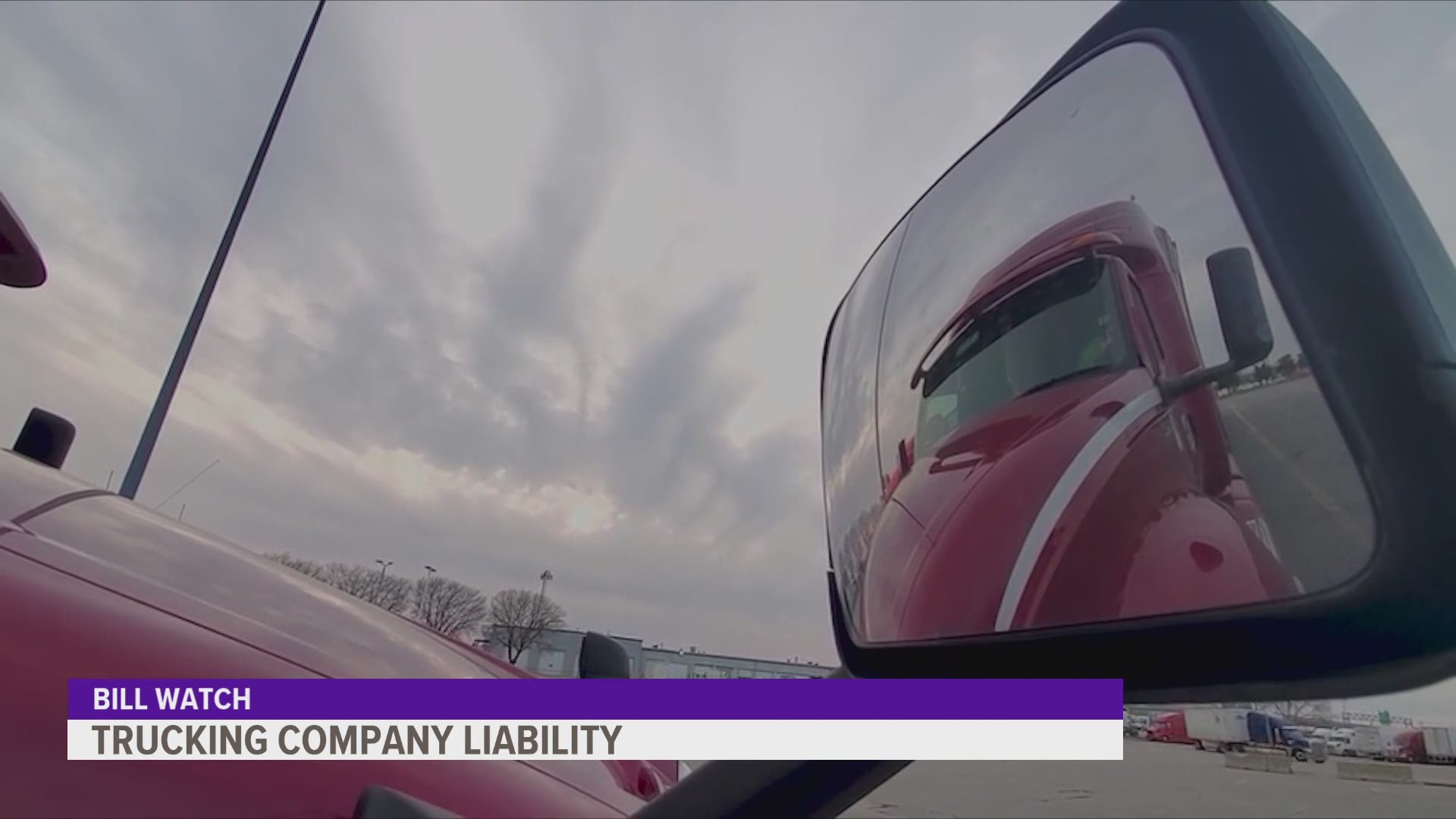DES MOINES, Iowa — A bill working its way through the Iowa legislature could prohibit astronomical jury verdicts following trucking crashes, but some are worried it could have unintended consequences.
These so-called 'nuclear verdicts' have cost some trucking companies tens of millions of dollars.
The bill does three things: It limits company liability if their employees cause harm, puts a $1 million cap on noneconomic damages and prohibits people from trying to claim punitive damages in their initial lawsuit.
Sen. Zach Whiting, the floor manager of Senate File 537, said the bill stems from very high jury verdicts being awarded in other states following crashes.
"We have heard some concerns about some astronomical nuclear verdicts in the trucking industry," Whiting said. "Ultimately, high verdicts are going to get passed along to the consumer."
Some worry the language in the bill is too broad.
"The bill really is atrocious for victims," attorney Ann Brown said.
Brown said she's represented someone who was attacked while being trained to drive a truck.
"Ultimately, he got drunk and forcibly raped her," Brown said.
Brown said the company that employed this man had been told by other employees that he had a drinking problem.
"He also had a criminal history of violence against women, which would have been discovered with a very simple background check," Brown said.
Brown said if this bill becomes law it'll take away the incentive for companies to change their employment practices.
She said it also would allow companies to keep information from juries.
"The trucking companies have just marched down to Des Moines, pocketbook in hand, and asked the legislature to give them special treatment to allow them to keep this conduct secret," Brown said.
Local 5 asked Sen. Whiting if lawmakers have considered narrowing the scope of SF 537.
"Certainly, as it goes through the process, we can talk about and think about it," Whiting said. "This just happens to be the language where we're at, in the in the committee process, right now."
This bill has been voted out of committee, making it eligible to move to the Senate floor.

